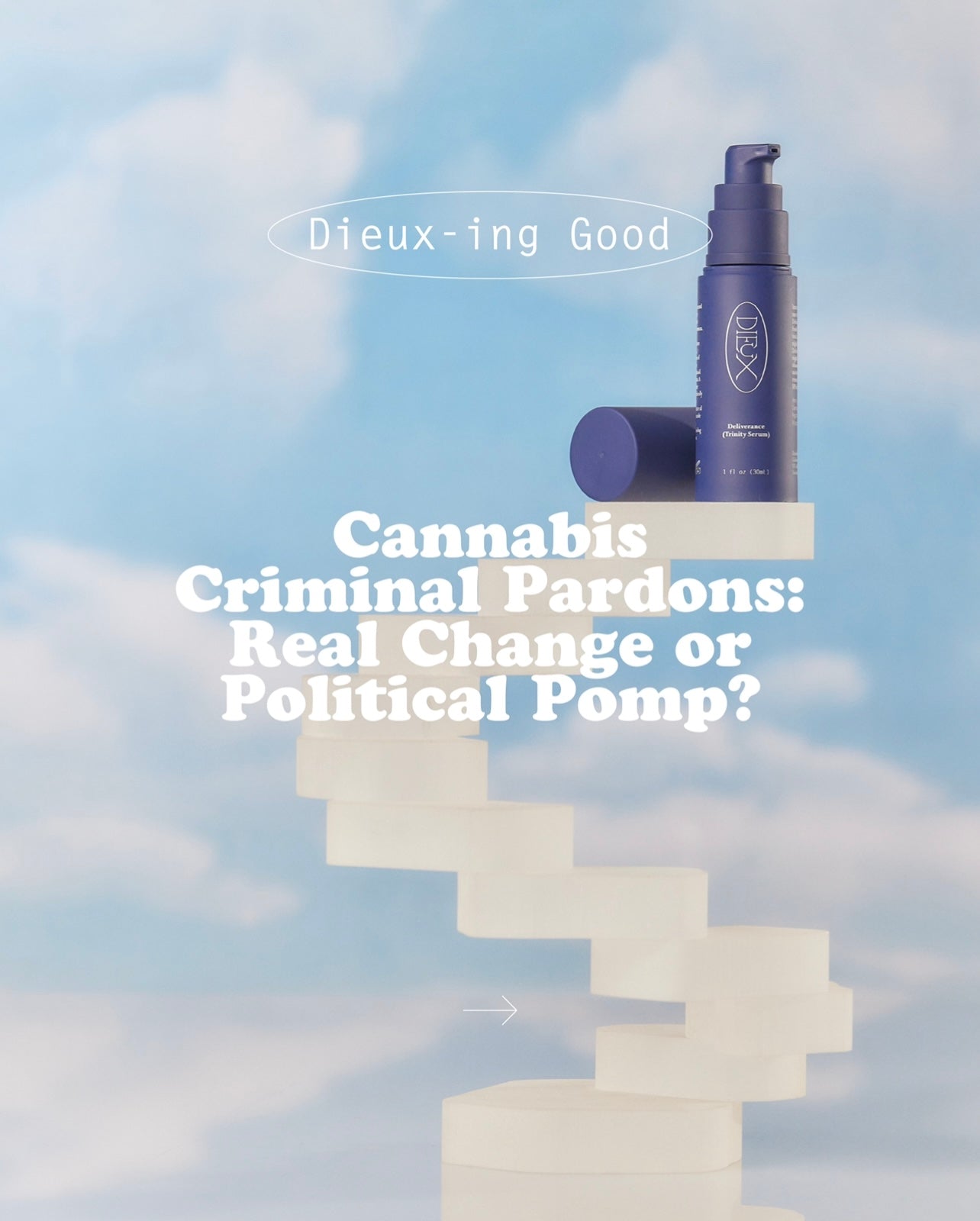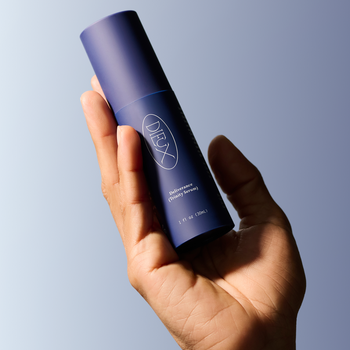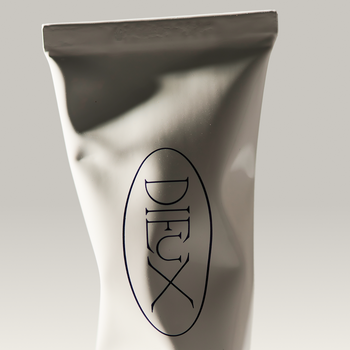
Let’s Talk About Cannabis & Convictions…
As a beauty business who uses CBD from hemp as an ingredient, we are invested in understanding the legislation around it. Today we are breaking down Biden’s cannabis pardon, who it impacts and whether it does anything at all to right the wrongs committed by the War on Drugs.
On October 6, President Biden issued a pardon for all prior federal offenses of simple cannabis possession. In the same announcement, he urged all Governors to do the same with state offenses and asked the Secretary of Health and Human Services and the Attorney General to seriously review how cannabis is classified under federal law. Initially, this was met with celebratory retweets and praise for the long-awaited release of those still serving jail time for cannabis possession but a closer look revealed the limited nature of the pardon—including that it potentially wouldn’t free anyone from jail—and a wave of disappointment from the cannabis and broader social justice community has followed.
Despite the mixed reaction, Biden doubled down on the impact of his announcement a couple weeks later at an event, referring to it as proof of keeping his campaign promise that no one should be in jail merely for using or possessing marijuana.
That’s extremely misleading to the public.
However, to say that this will not make any difference at all for thousands of people who have fallen victim to biased cannabis prohibition would also be inaccurate.
So, let’s set aside social media commentary and contradictory hot takes for a moment to make sense of exactly what’s going on with this pardon, whether a president can even implement the changes he claims, and the broader takeaways when considering this President's timing, track record and the cultural context of this moment.
Why Clemency?
To fully understand how we got here and what might have motivated President Biden to take this approach to cannabis policy reform, we have to start with the US government’s War on Drugs.
Although law enforcement has been putting people in jail for cannabis since it was criminalized in the Marijuana Tax Act of 1937, the War on Drugs that we commonly refer to kicked off in 1971, when then President Nixon declared drug addiction as "public enemy No. 1." Nixon established the US Drug Enforcement Administration soon after that, ushering in a touch-on-crime era of aggressive military tactics and harsh sentencing for drug-related offenses of any degree. Much of this was rooted in racist bias with the intent of disrupting the increasingly influential Black and counterculture communities — Nixon adviser John Ehrlichman confirmed as much in a 1994 interview:
"We knew we couldn't make it illegal to be either against the [Vietnam] War or Black," Ehrlichman said. "But by getting the public to associate the hippies with marijuana and Blacks with heroin, and then criminalizing both heavily, we could disrupt those communities."
Police units carried out drug raids that involved armored helicopters, assault weapons and tanks equipped with battering rams, filling jails and prisons with low-level offenders and traumatizing neighborhoods and entire communities for decades. By many accounts, the War on Drugs has been an utter failure, primarily resulting in devastating generational impacts for the disproportionately impacted Black population. It contributed to a large part of the 2 million people currently in a US jail or prison — the largest prison population in the world.
Today, 1 in 5 incarcerated people are in prison because of drug related crimes. Numerous factors make the exact number of cannabis-specific offenders currently imprisoned difficult to quantify, but at least 3,000 people are currently imprisoned for cannabis-related crimes, and likely thousands more. And people continue to get arrested for cannabis every day.
Freeing these unjustly incarcerated people is a common cause in the legal cannabis industry, and it was a frequent bullet point when Joe Biden was on the campaign trail towards president. His calls for decriminalization and mass expungement of cannabis-related offenses were among the reasons many believed in his potential to enact positive change if elected. Unfortunately, when it comes to cannabis, that has not been the case—including this latest pardon.
The Facts We Know
While the President presented this pardon as the change we’ve been waiting for, it will not impact anyone currently in prison. It does not apply to convictions under state or local law—the levels at which most possession charges occur. It also excludes people who were “non-citizens not lawfully present in the United States at the time of their offense,” and it will not expunge any records of those who’ve completed their sentences either.
Although recent comments point to Biden maintaining a hard stance against those convicted of sale of cannabis, he commuted the sentences of 75 federal drug offenders earlier this year, including eight people convicted of marijuana offenses—many of whom included intent to distribute—expediting their release from jail to this year or next.
Here’s the thing: Presidents can’t mass expunge records. Expungement is possible for people convicted of simple possession who were younger than 21 at the time of the offense, but outside of those qualifications, new legislation from Congress would be required to implement a mass clearing of records. This doesn’t stop future arrests either—per the Justice Dept., the proclamation pardons “offenses occurring on or before October 6, 2022. It does not have any effect on marijuana possession offenses occurring after October 6, 2022. ”
So, is anyone impacted at all by this pardon? Yes. While there are no individuals currently in federal prison solely for simple possession of marijuana, individuals charged or convicted with simple possession—and nothing else—will be restored their right to vote, to hold office, or to sit on a jury, and they can obtain a document proving their pardon to show whenever their criminal record comes up. But they will still have to report their criminal record when asked. Expungement is its own lengthy and costly process, and this will help the estimated 6,500 people eligible to be pardoned, to some degree, until they’re able to do so.
The Takeaways For You
Outside of those 6,500 and some people eligible to request a pardon to have on hand, Biden’s pardon will not have a major impact. Until Congress passes legislation that says otherwise, simple possession will remain a federal crime punishable by a fine of $1,000 or more and up to a year in jail. Even if Biden tried to make good on his campaign promises for decriminalizing cannabis, he couldn’t do so without legislation from Congress.
As for the rest of Biden’s Oct. 6th announcement—encouraging Governors to do the same and requesting a review of cannabis’ Schedule 1 status—many Governors are already doing much more to right the wrongs of the War on Drugs than this pardon, and descheduling or reclassifying cannabis is another action that can be done most efficiently through Congress.
It’s good that those eligible people will get some support while living with criminal records, but it’d be better to see the president work with legislators to enact real mass expungement measures and form a plan for reclassifying cannabis, which would in turn open up pathways for medical research and access to financial institutions for licensed cannabis businesses. It’s also hard to ignore the strategic timing of this announcement exactly a month before the midterm elections, and it’s fair to question the sincerity behind Biden’s first mention of cannabis policy since moving into the White House.
Still, with all of that in mind, it is no small deal that this conversation is happening on the national and international stage. This is a politician who supported the controversial 1994 crime bill that helped fund this country’s vast complex of state and federal prisons and fill them with many minor drug-related offenders, and here he is pointing out the fallacy of scheduling cannabis at the same level as fentanyl. It is pretty major, in fact, for a US president to loudly and officially acknowledge that no one should go to jail for possessing cannabis, although he could be doing much more to help stop that from happening.
It’s possible to be realistic about Biden’s announcement and a little celebratory about this step towards the right direction in cannabis policy. This is not as major as Biden made it seem, but it is not nothing. Similar to the student loan forgiveness move, it is likely an intentional bid to rally the left’s enthusiasm, and, if it isn’t blocked by lawsuits, it's also meant to do some good.








